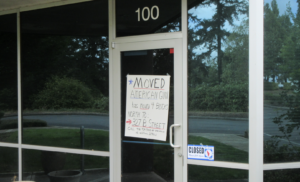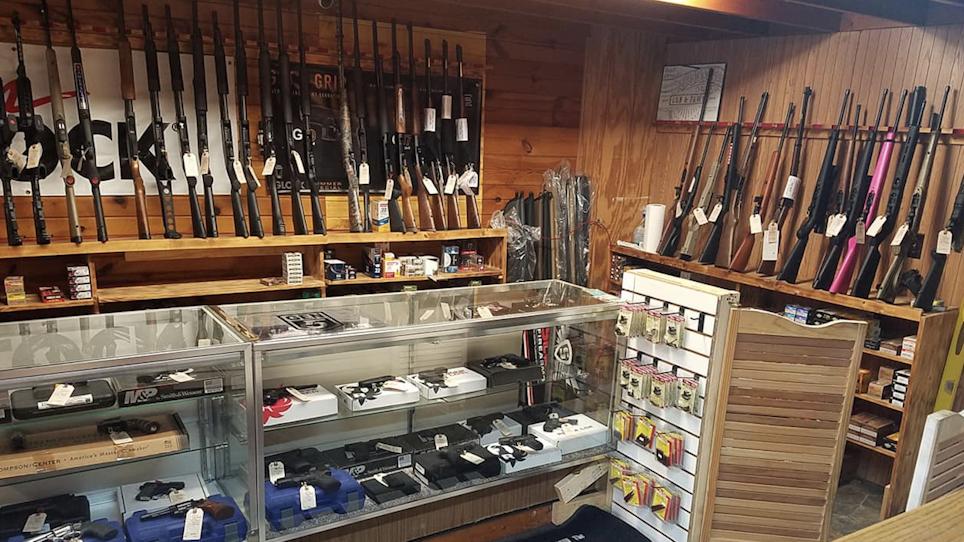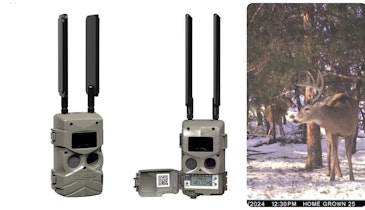Operating a business requires many decisions, but one of the most difficult decisions to make is where to locate the business — or X marks the spot. Sometimes, the next best decision is deciding when it is time to pull up stakes, move and then again roll out the red carpet. As cities and states become more anti-firearms focused and create more barriers to business and profits, many companies have simply moved and rolled out the red carpet to welcome customers in a new location.
While you may not have a business as large as movers such as Beretta, Weatherby, Magpul or HiViz, any business can sometimes do better by relocating. Better news is that states such as Mississippi, Wyoming, South Dakota, Georgia and others have recruiters who are willing to speak with you.
Who moves? Per the U.S. Census Bureau, around 40 million Americans move each year. The U.S. Postal Service reports a similarly high number of requests annually for change of address. Moving is not just for individuals and households — businesses also move.
Why Move On?
Businesses can move for many reasons, including: a lack of labor or workforce issues; wanting to reach new markets and new customers or because the local market is shrinking; to increase income or decrease costs (such as regulations and fees) or to make upgrades in a new location, such as adding a range.

Moving a business is challenging but sometimes it's the best thing for the bottom line as well as quality of life for owners and employees. (Photo: Mike Faw)
Some business owners want to increase their, or their employees’, quality of life. This is a major relocation drive that can be influenced by an assortment of local issues such as property taxes, schools, transportation, cost of living indexes and commute times. Some businesses also relocate because a competitor opened a new store nearby.
Before you make the decision to relocate, it’s time to take stock. Good employees are a challenge to find anywhere, and often times it’s more of a challenge to keep your current team if you move. Listening to employees, or seeking their opinions, can sometimes influence decisions to move. If the employees are in favor of relocating, you’ve met one major hurdle and can move (pun intended) ahead.
Some cities and areas also frequently offer tax advantages, discounts on water and utilities, waivers of fees for a period of time and other incentives to move there if you expect a certain level of income or plan to hire a certain number of employees. Some states and cities will also prepare news releases, help with grand openings and ribbon cuttings, and offer various other incentives to move there. Even if you are moving across town or just up the same street, it pays to ask about the options with the local business councils or the mayor’s office.
A Master Mover
There are complex and multi-tier reasons to stay in place, and reasons to move. Possibly no retail firearms shop knows that better than Scott’s Pawn and Guns in Centerville, Iowa. Owner Scott Bubane started his firearms business in his garage before finding a retail space near the city’s square. His firearms shop was there a couple of years before next moving about a half mile east, but into a bigger building on the corner of a major intersection. He purchased that location as it offered two great incentives — many cars passing and high visibility. It was a location others also noticed.
“That move to the intersection of Highways 2 and 5 put me in a much bigger building and in a more visible location,” stated Bubane. “I was there for a period of time, however, when a big company approached me about buying my building and lot, that opened another option to move again. The great news is my newest (third) location has that more rustic feel and lots of wood inside, and it looks more appealing to customers.” Scott also owned this building, which is about 100 yards up the same street from his second location.
Yes, if you are counting, Bubane moved three times in about five years. There’s one other pointer he can provide on making a move.
“I kept my old location open as I was beginning the move to location number three because it was supposed to take 30 days for an amended FFL, but there were some mix-ups and the change on the licenses took longer — much longer,” said Bubane. “Because of my sale contract with the new buyer of that second location, I had to close for three weeks until I could open in my current location.” Luckily customers understood and are enjoying the new location, which also provides more parking and easier access. To complete each move, Bubane has packed and moved everything himself. That also helps him take inventory of goods on hand and make future merchandizing plans.
Get the Answers
Making the many critical decisions related to a move can be a challenge. The Small Business Administration (www.sba.gov) offers a free online course with great pointers on picking a business location. Some of the pointers can help determine if the time is right to move, and where to again roll out the red carpet. Sometimes the cost and income numbers in the current location compared to a possible new location can help you make this decision.

Indoor gun ranges come with a host of considerations but could increase revenue and foot traffic. (Photo: Mike Faw)
Knowing how many potential customers will come by the front door of a location under consideration is a great starting point. Traffic counts at intersections and on streets in the neighborhood are readily available from highway and street departments and through other sources. Banks and real estate offices can also provide important numbers about the local business environment, but do not simply take their word for it. If it sounds too good to be true, it probably is, so double check their numbers.
The same holds true for information from city and county government offices. Be certain to get the details and copies of ordinances and regulations before you sign anything. Dig deep and learn about possible sign or store front ordinances, parking restrictions, fire regulations, annual inspections and fees, quiet zones and other possible surprises and “hidden” costs. Some businesses have learned the hard way about unmentioned restrictions.
Look before you leap, visit businesses in the area where you wish to move. More local market research can be accomplished by subscribing to local newspapers, going to economic development council board meetings and possibly becoming a member of the local Chamber of Commerce. Also go to the location on weekday mornings, and on weekends, to see how the site traffic changes. While in the area, drive around and walk through any local neighborhoods. If you plan to have a gun range, they could be customers — or complainers.
Doing thorough research requires snooping about sometimes, so look at local planning board minutes and meeting notes from the past year(s) and research proposed zoning laws. If all of this seems time consuming, you can hire someone to find the facts for you. Do not rely solely on a realtor or one person on the economic development council because their mission is to make a sale and your business success is often not their top concern.
There are also businesses that specialize in moving companies and all the related components. If you seek to contract their services, ask about whether they handle firearms and ammunition. Many do not. Another concern related to moving a business is income to cover employee costs, overtime and other costs. Moving a business can be more complex than moving a home or family.
Crunch the Numbers
Moving benefits versus staying benefits can be calculated. Among the quick cost calculations are: time your business will be closed to relocate; any relocation costs; opening new service accounts such as electricity and water plus sewer; and permits at the new location. Additional costs are the costs of rentals, trucks and moving supplies. Many of these can be rented, but some items must be purchased.
On the plus side of packing and moving are possible added income from having sales at the current location. Some businesses ensure a fresh start by selling outdated equipment, store shelving and other items not needed or wanted at the new location. If you own the current building and lot, selling those can become huge cash inflows for your business. These one-time sales can help offset some of the relocation costs.
One other set of numbers needs to be calculated — what if you stay in place? It pays to estimate the expected loss of income if you stay. Neighborhoods, locations and customer bases change. America is known as a nation on the move, so always compare your income and customer bases annually to spot trends — and especially declines. A drastic decrease in sales of ammunition, firearms and accessories — or when several of your top customers are suddenly stopping in and saying “goodbye” — should all raise warning flags about your location and current situation.
Rolling Out the Red Carpet
A successful move also requires letting your current customers know where you are going, and letting new customers know you have arrived. Be certain to leave a sign announcing the relocation at the current location months before you make the move. Once in the new location, remember to notify major shippers such as UPS and FedEx. Let local businesses, gun clubs and civic groups also know you are now open. Of course, BATF and other government agencies that have issued licenses will need to be notified.
One uptick in moving is a fresh start. This could be a top time to seek new displays from vendors such as wholesalers for firearm displays. It’s also a time to improve shelving, displays and to be better organized to better serve customers.
After you relocate, make plans for a grand opening and host local dignitaries for the always popular ribbon cutting ceremony — then swing the doors open wide. Relocating has helped many businesses get a new lease on life, and have dramatically increased the rings at the cash register.
Is it time to go elsewhere to roll out the red carpet?






